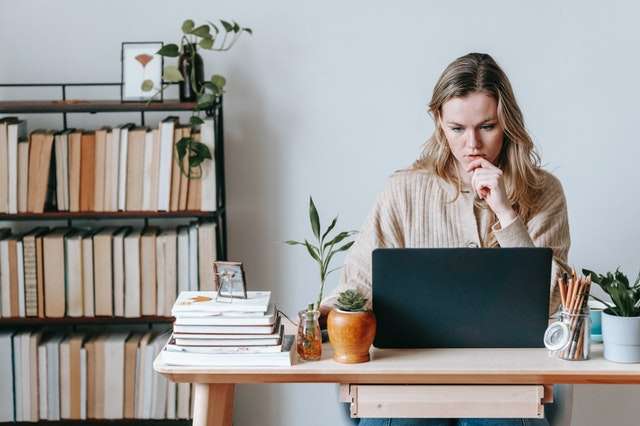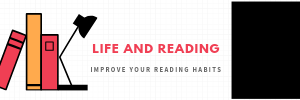
Studying is an effective way to get good grades and get to know things better.
Everyone that’s ever sat for an exam knows how having studied enough gives you confidence even before you see the question or exam paper.
To study well and actually have good comprehension of the material that you’re reading. You need good strategies that can help you do this.
In this post I’ll walk you through some of my favourite studying strategies that have worked well enough for me to leave a lasting impression.
Of course there’s a possibility that you already know some of the studying strategies I’ll share here. So I’d advise you to keep reading and exploring.
I’m confident you’ll run into new study strategies that will make reading this post a more enjoyable process.
Let’s face it, studying is not always the easiest thing. Because the school system mainly aims to push its students to the limit in efforts to toughen them up for society and the work place or college.
It doesn’t matter if you’re in high-school, college or university,…the strategies I’ll share here are universal and can be used by anyone that wants to improve their ability to study.
Because for most people, studying is about getting information from a page into their heads.
But the strategies I’ll teach here are strategies to get information into your head so you can easily retrieve later when you need it.
With that said let’s get into some of the best effective study strategies…
PUT YOUR PHONE AWAY
In this day and age its only right that I start out with this first strategy of reading.
Please put your phone aside. 90% of people that study and look at their phone lose concentration and barely grasp what they read.
Let’s face it, phones are basically the bridge between the physical and virtual world and you can easily be pulled into that virtual world.
You’re trying to study, put the virtual world aside.
Atleast only use your phone when you’re taking a break from the books. This way you can maintain and control your curiosity of “what is going on the phone” so that it doesn’t interfere in your studies and makes you lose focus.
STUDY IN THE RIGHT SPACE
Now that we have gotten phones out of the way let’s get into the next studying strategy which is to essentially study in the right place.
Picking or choosing the right place to study is a strategy in itself. If you read better in your room then study from there, if you’re a more library person then get out of your room and hit the library.
My point is to grab hold of your strengths by studying in a healthy environment that won’t let you lose your focus or concentration.
For example, studying in an untidy room can be very difficult because disorganisation only breeds more disorganisation.
To study like Einstein, clean your room, curate your space and make sure you’re reading in the right place.
STUDY AT THE RIGHT TIME
People are different and no human being is an “any time” reader. Some people prefer to read during the day while others prefer to read at night.
It’s your responsibility to figure out which part of the day works best for you in terms of studying.
My point is, studying in your most productive times or hours of the day is the best strategy to keep your focused as well as right in the sweet spot.
PLAN, PLAN, PLAN
Proper planning prevents poor performance.
Thats a lot of P’s but you get the idea.
You need to be able to draw up a map to help you navigate the study territory.
Ensure that you do this.
what you want to study is only the first step, figure out what you’re studying for, what topics and any other relevant information that is necessary to prepare you for a good study session.
Avoid going into a study session without having a plan of what you’re going to study.
Most of the times study sessions end really fast when they are not planned for.
STUDY AND TAKE NOTES
The goal of studying is to grasp the key concepts so you can make sense of them.
This is why note-taking is so important. It can help you identify and note the areas that are the keys that open the doors to a wealth of information.
So use notes to guide you in this manner.
Later on in the post you’ll learn a key strategy that works hand in hand with note-taking so keep reading. This way you’ll get a better idea of how the puzzle pieces fit together.
USE MORE THAN ONE STUDY MATERIAL
Students often limit themselves to the recommended reading material that their teachers/lecturers/tutors give them.
Most students often times find themselves bound by this material which diminishes the actual goal of studying.
If you want to study and wield more and better information then read and cross reference what you read with other books available on the topic.
This strategy can help you understand certain points clearer as well as help you develop more than one way of looking at thing’s like concepts or ideas.
Think of it this way, studying using only recommended or available material is a single dimensional way of learning, while studying different material on the same topic is a 3-Dimensional way of learning.
USE MATH AS A PRIMER
Studying is never an easy battle. Everybody has a bone of procrastination in them.
This makes studying difficult at times and more often than not people feel like going head first into studying is the cure for procrastination but it doesn’t really work that way always.
I’ve found that a good effective study strategy to break the ice between studying and relaxing is to study math before you get into the informational “worded” material.
A good way to use math is to have a 10 to 15 minute math session before you dive into the informational study material.
The math helps to wake your brain up and get it excited.
CONSULT
Don’t ever think learning is always an individual process especially if you’re a student.
Schools are meant to be places for collaboration and I think if more students knew this they’d do far better. But most don’t.
Therefore one of my favourite studying/reading strategies is consulting friends or experts whenever I’m stuck at a certain point.
This way I can look through the minds of other people that can then point me toward understanding.
If you’re a college student, you’re literally surrounded by the most vibrant brilliant minds of our generation so make use of them.
Also have lecturer, teachers, tutors help you out.
SELF QUIZZING
To remember information effectively you need to test your understanding from time to time.
Don’t always study and not quiz yourself because you can easily forget a lot of things.
Therefore always have self quizzing as part of your study strategy and this way you’ll be able to actually retain your memory contents easier.
Testing and quizzing yourself makes the brain work harder by making it recall what it learnt/read/studied.
This makes it store that knowledge and make it even more readily available for you on command.
Imagine having this kind of power?
You’d be a limitless student, so take account of the power of quizzing and self testing.
CHUNK DOWN STUDY SESSIONS
Studying for 8 hours continously is an ineffective way of going about studying… granted I’ve exaggerated the number a bit, but you know the point I’m trying to make…
Studying is not an activity like eating ice cream which keeps your brain and taste buds stimulated.
Studying is hard difficult work… so, doing it for long periods will result in it not working as effectively as you want.
A good studying strategy is to chunk down your study sessions so you can turn a 4 hour study session into eight 30 minute chunks of studying.
This way, you help your brain rest and give it room to process information.
REVIEW STUDY SESSIONS
Each time you finish studying your job is to pick up your notes and pin point the core ideas you picked up.
Once you have these core ideas you can then begin to go through them again and try to explain them in your own way.
This can be verbally or non-verbally.
Like I earlier suggested, taking notes is basically leaving footprints that you can later follow.
WATER DOWN COMPLEX IDEAS
The main goal of studying is learning. So it should always be at the forefront.
This basically means having the ability to dissect complex ideas and water them down to a point where you’d explain them to a kindergarten child and they wouldn’t get confused.
Watering down complex ideas is a great way to make your studying more effective.
A good way of watering down complex ideas is using analogies.
Using analogies can help cement the knowledge you have of ideas because you can essentially break down complexity and bring it down to a level where its less scary and less arcane.
DON’T BE A “LAST MINUTE” STUDENT
Everyone has gone through this at a certain point.
Being a last minute student is basically being a student that only ever studies when a test is only a couple of days away (or the next day).
Therefore this strategy is less strategy and more on the advice side.
Don’t be the student that always studies when it’s too late because you’ll never learn anything.
all you’ll be doing is memorising stuff.
Study at your own pace and you’ll study more effectively.
USE VISUAL CARDS
Visual cards are another strategy that can improve your studying and take it to the next level.
Using visual cards in a way is basically note taking but on a more intentional visual level.
You can use paper cards with different colors to write key notes or important concepts and stick them up on a wall…
This works best if you have a wall or board dedicated to paper cards…
Using paper cards as visual cards can prove to be quite effective because you can have all information in your face all the time.
Plus color-coding can be a way in which you remember certain pieces of what you read.
REST
Finally, one of the most underrated studying strategies is resting…
Please get enough rest and don’t study non stop because you’ll most likely burn out.
To study effectively you need your brain fully functional and operational. Rest can help you have this.
Articles You Might Find Interesting
How Long Can A Person Concentrate When Studying?
Is It Better To Study Via Books Or Computer?
Should I Play Video Games After Studying?
Why Do I Study Better When I’m Tired?
Helpful Resources
Studying 101: Study Smarter Not Harder – UNC Learning Center
10 highly effective study strategies – Learning Fundamentals
5 Research-Backed Studying Techniques – Edutopia
Effective Study Strategies – Cornell.edu

